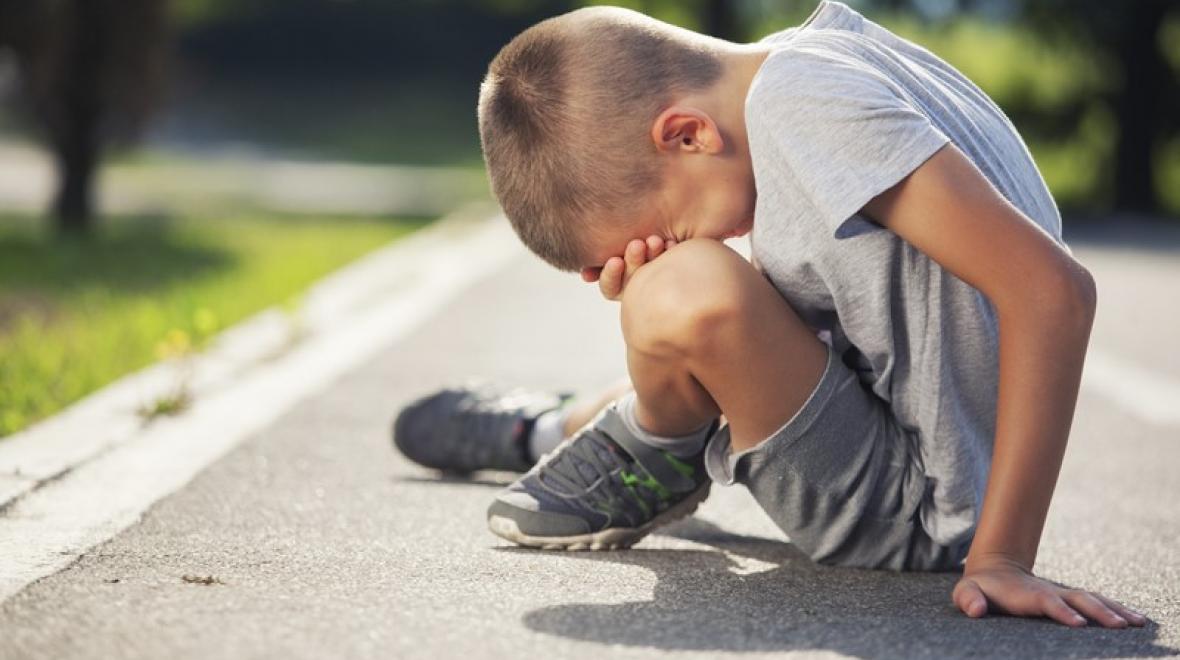
Editor's note: This article was originally published in 2016; links were updated in 2018.
I’ll never forget a family session in which a father berated his son for crying about not making the basketball team. “Get over it. Don’t be a sissy,” the father said.
The boy was clinically depressed. I tried to explain how corrosive it can be for boys to stuff their emotions. It didn’t go well. After all, the father said, I was biased as a female shrink.
Then there was the time I conducted a school in-service training about gender issues. The male coaches ridiculed me for not “getting boys” when I discussed the importance of supporting boys in discussing feelings of vulnerability. That was rocky, too. And I’m not sure a facilitator from the NFL would have fared much better than I did — because he'd be a guy wanting to give a gender-bias in-service. Suspicious, huh?
In 1998, William Pollack wrote a book entitled Real Boys: Rescuing Our Boys From the Myths of Boyhood. He described the boy code as the requirement that boys should be stoic and independent, macho and athletic, powerful and dominant, and phobic of anything close to feminine (e.g. warm, empathetic or sensitive). If they aren’t, they are wimpy losers.
Not much has changed.
An analysis of the Orlando nightclub shooting tragedy in 2017 described toxic masculinity as a specific model of manhood geared toward dominance and control. Boys and men are supposed to be in control and invulnerable, and when they aren’t, they are ashamed. The shame turns into resentfulness, hate and self-loathing — a toxic brew, especially when guns and social media get into the mix.
A documentary released in 2015, The Mask You Live In (which you can now watch on Netflix), films boys from every kind of background who describe the way they suffer from our culture’s narrow definition of acceptable masculinity. A viewer can’t help but be impacted. Given the long-range effects of this public health crisis, everyone should see it.
The pressure to be constantly strong means that boys learn to wall-off feelings. Because a huge part of life experience is hurt, sadness, disappointment and other forms of vulnerable feelings, boys lose the opportunity to develop their emotional intelligence.
We need to trust that if we show compassion for boys’ tender sides, it won’t make them fragile; it will enhance self-acceptance.
Feelings guide us. They steer us to seek help and consultation. They motivate problem-solving and informed decision-making. And most importantly, they drive connection with others. (See this article on why "emodiversity" is critical to boys' physical and mental health.)
What happens to this pent-up frustration when boys inevitably come up short in the manhood-code department? It can lead to depression, conduct disorders, isolation, problematic relationships and even violence.
Problems abound with toxic masculinity just as they do with the gender-typed pressures on girls. Girls are supposed to be pretty, skinny, perfect, accommodating and never aggressive or angry. Gender straightjackets on both males and females can strangle, and try a gender identity that isn’t binary and you’re really in a bind.
What are the solutions? Busting out of those gendered straightjackets is a start. We need to validate boys’ feelings when they experience negative emotions. We need to trust that if we show compassion for boys’ tender sides, it won’t make them fragile; it will enhance self-acceptance.
Supporting boys when they struggle and suffer enhances self-awareness, which is the first step in their developing a full repertoire of social and emotional skills.
Successful people are able to articulate feelings, show empathy for others, cooperate and negotiate conflict amicably. When they connect effectively with others, people want to work with them and love them. Who doesn’t want this for boys?
Resources on cracking the boy code
Why emodiversity is a word you should know
"Raising Cain: Protecting the Emotional Life of Boys"











